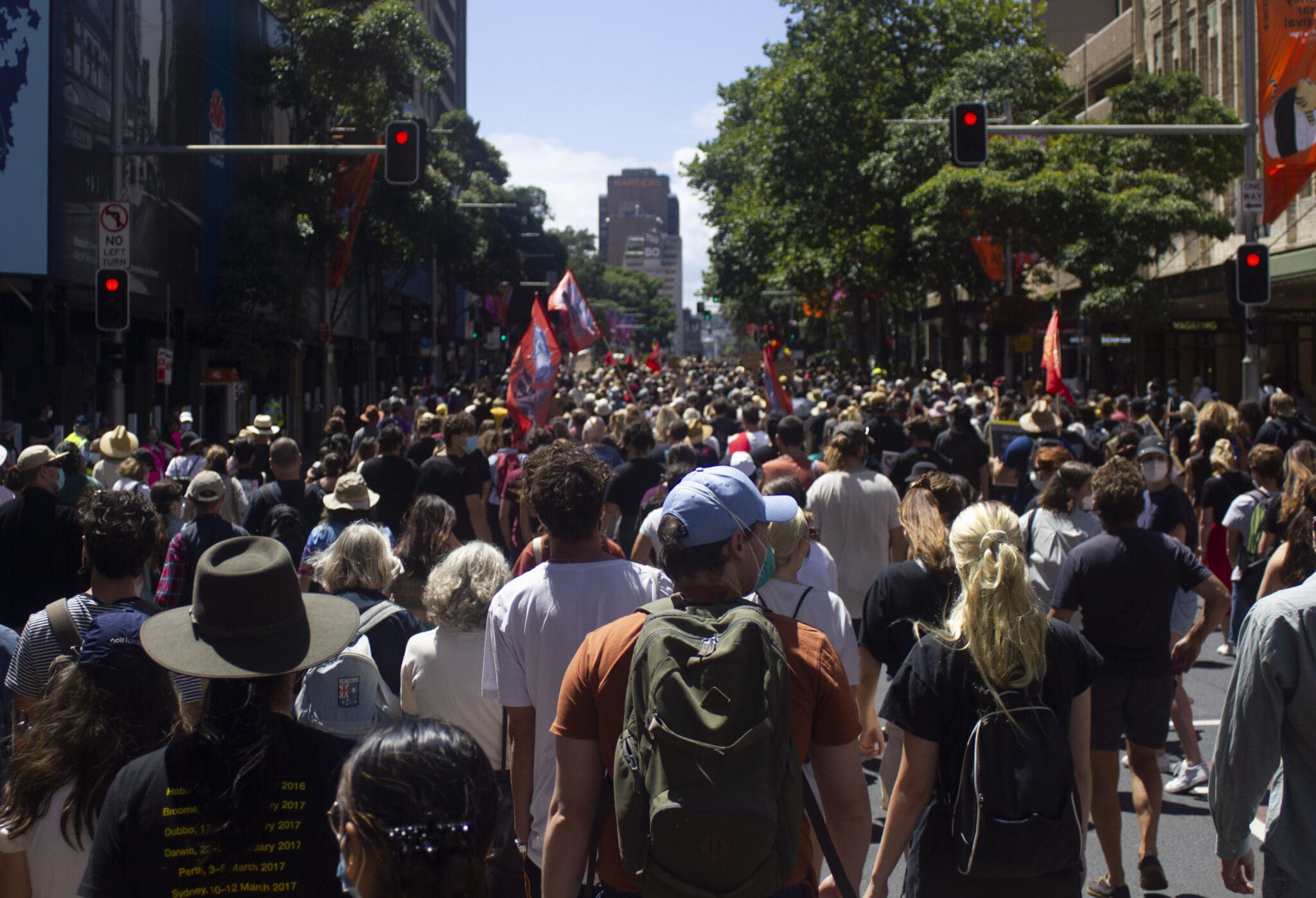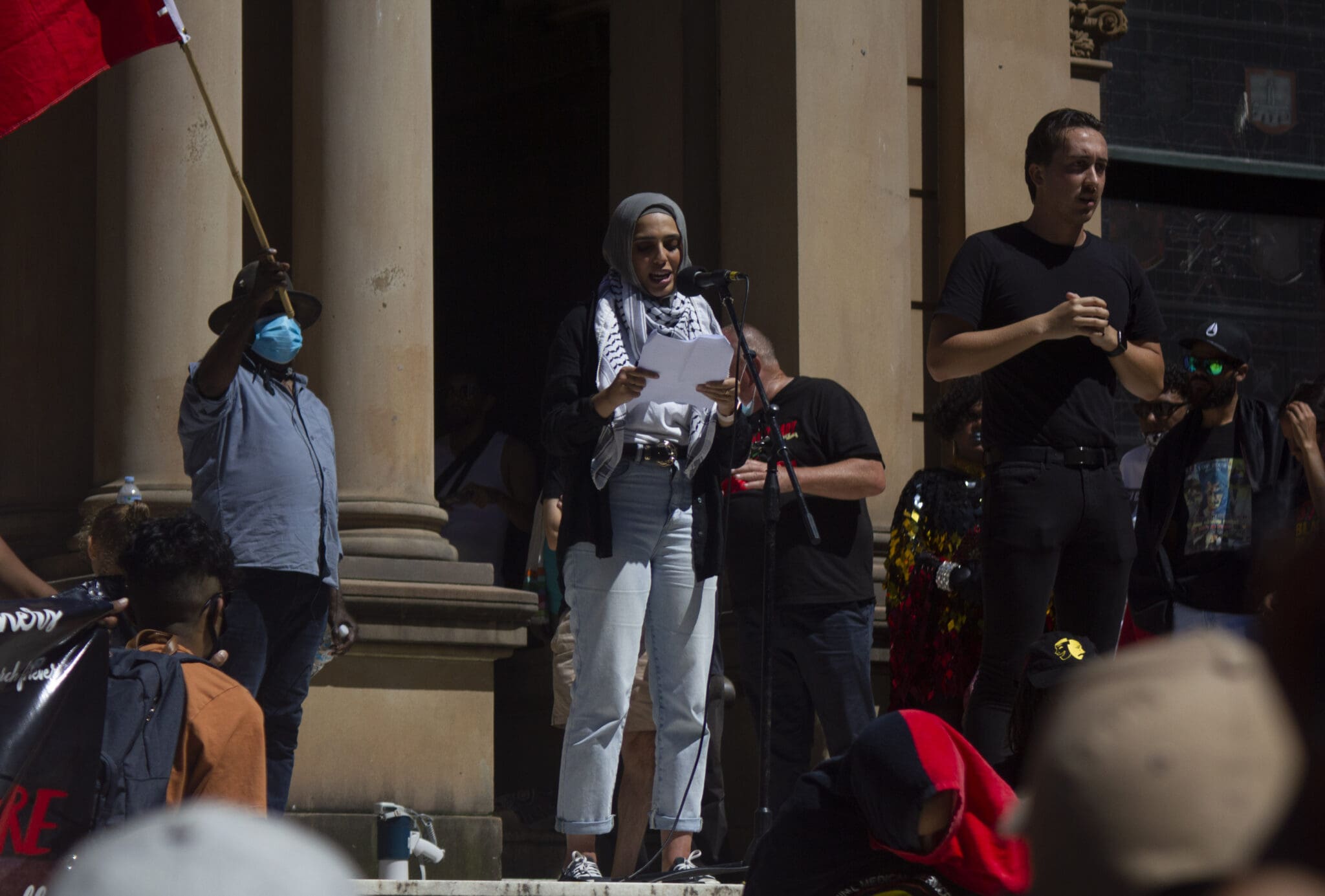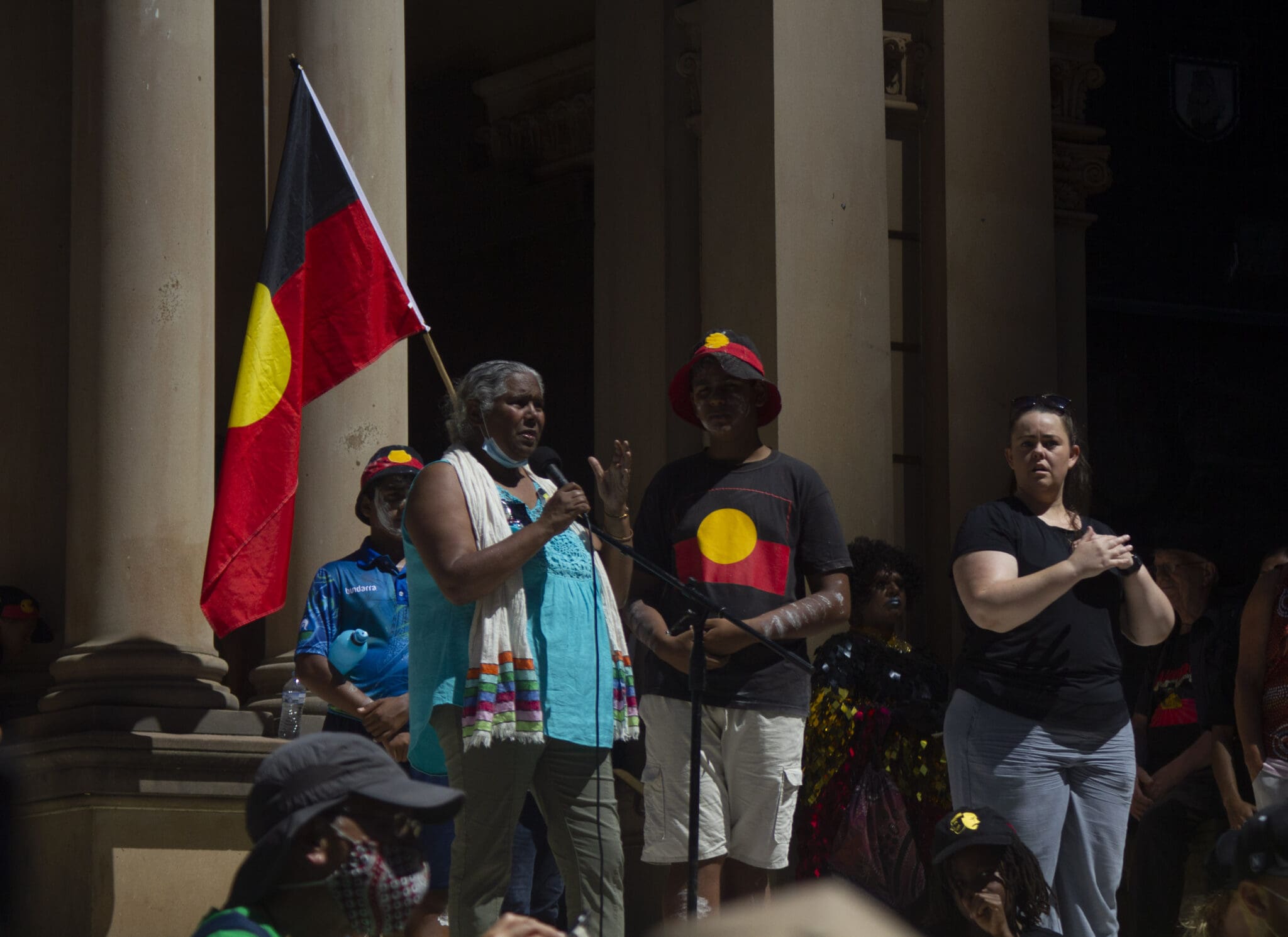For First Nations people, the 26th of January marks the beginning of the ongoing colonial project which upholds “Australia”. While the Australian Government celebrates this day, Indigenous people have held a Day of Mourning since 1938.
The protest at Sydney Town Hall was opened by Aunty Lizzie Jarrett, who reminded the crowd that today, Indigenous people are “not okay… today represents the continued genocide”.
Bidgigal and Gadigal drag queen Nana Miss Koori welcomed us to Country, saying the colonisers “set up shop without a welcome,” and that her “presence here is testimony – we have survived”.

We then heard from Kyah Patten, niece of Eddie Murray, who died in police custody. Kyah is taking up the fight for her Uncle’s justice that her grandparents spent their lives working towards.
“This system was built to keep us down and it’s still keeping us down… I’ll fight another 41 years, until I’m in the ground, for our justice – for what we deserve”.
After Kyah’s speech, Yorta Yorta woman Amanda Morgan moved the crowd with the story of her brother, who is currently incarcerated at Silverwater Prison. She explained that she could clearly see the journey that put him there – “cut off from your family, your community and ultimately your culture because of racist governments. We are not the problem”.
Paul Silva, the nephew of David Dungay Junior, spoke about Indigenous deaths in custody, reminding us that “the Australian Government has the power to hold these people to account, but they don’t. Because they don’t care. 500 deaths, and no convictions”.
He went on to reflect on the contrast between ‘Australia Day’ celebrations and First Nations’ experiences of the day, saying “they woke up for barbecues… I woke up with tears in my eyes”.
Clayton Simpson spoke on behalf of Uncle Teddy Russell, whose son Eddie died in custody in 1999. They demanded justice for both Eddie and their son Stanley, who died in late 2021 after being shot by police.
This was followed by a speech on the Waterloo Creek Massacre, which was perpetrated by police and settler-colonists on Gamilaroi land on January 26, 1838.
Amal Naser, a Palestinian activist, spoke to the audience about international solidarity between dispossessed people. She celebrated the boycott of Sydney Festival, with Indigenous performers among the first to drop out and over 40 per cent of the festival being impacted.

“The colonial regime is practicing the crime of apartheid against our people,” she said, comparing Israeli and Australian colonialism. “The Nakba is ongoing and happens every day, the same way Survival Day happens every day here.”
Aunty Lizzy Jarrett then returned to read a moving passage from Leetona Dungay, mother of David Dungay. Leetona spoke about the first Invasion Day march in 1938, the pain of losing her son, and continued deaths in custody. In a particularly affecting moment, Jarrett asked the audience to raise their hands if they were a member or descendant of the Stolen Generation. Hands went up throughout the crowd.
The protest then marched to Australian Hall in silence (though unfortunately many attendees continued to make conversation with each other). Protesters then briefly sat in the middle of Elizabeth Street to hear from more speakers.
The latter half of the march was marked by chanting, and despite a sizable police presence there were no major scuffles. The march concluded with protesters arriving at Victoria Park to enjoy Yabun festival.





